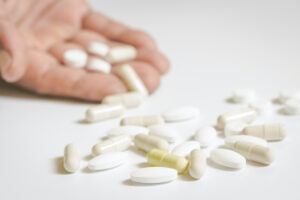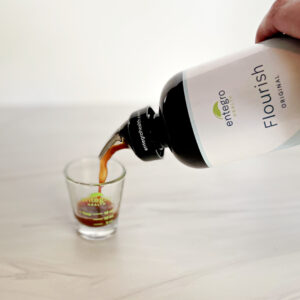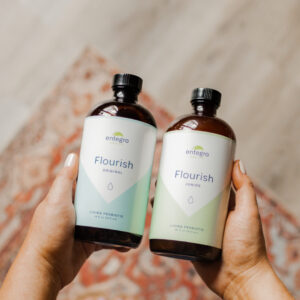Antibiotics and Probiotics
Antibiotics and the Need for Probiotics
The topic of antibiotics is one of duality. On one side of the coin, antibiotics provide a powerful and effective way to treat bacterial infections. They have transformed once-deadly diseases into manageable and often curable conditions. On the other side, antibiotics can cause some serious side effects, especially within the digestive system. Fortunately, taking probiotics alongside antibiotics can help mitigate some of the potential downsides of antibiotics.
What are Antibiotics?
Antibiotics represent a class of medications that have played a pivotal role in modern medicine. Commonly, antibiotics are a treatment to combat a broad spectrum of bacterial infections, ranging from minor skin ailments to life-threatening diseases.
While antibiotics have significantly improved the prognosis of countless patients, their overuse and misuse can come with significant downsides. Unfortunately, antibiotics do not discriminate between harmful bacteria and the beneficial ones residing in our bodies. This can lead to a disruption in the delicate balance of microbiota in our body, leading to side effects such as digestive issues and increased susceptibility to other infections.
Antibiotic Side Effects
To start, all antibiotics have the potential to cause side effects and potential antibiotic resistance to varying degrees. Furthermore, the more you use antibiotics, the more problematic they can become for reactions and resistance.
Some of the most common side effects include diarrhea, abdominal discomfort, nausea, digestive upset, and vomiting. Additionally, skin rashes, vertigo, antibiotic resistance, and severe allergic reactions can occur but are not as common. It’s important to note that not everyone gets these side effects, but it is important to be aware of them.
Evidence for Probiotics
Excitingly, there is great evidence showing that when probiotics are administered alongside antibiotics, there is less diarrhea and fewer side effects overall. Studies that show these results can be found in the Journal of the American Medical Association where 63 human clinical trials were summarized. Specifically, the analysis found that subjects had 48% less antibiotic-associated diarrhea after taking probiotics.
Probiotics Can Help Antibiotics Work Better
Even more, studies show an improvement in infection clearance rate for antibiotics with the addition of probiotics. Specifically, one meta-analysis found that there was a doubling of the eradication rate of SIBO when probiotics were used alongside antibiotics. A 2020 meta-analysis found a 10% enhancement in the clearance of H. pylori (a common type of bacteria that attacks the stomach lining) when using probiotics along with antibiotics.
Lactobacillus, Bifidobacterium, and Soil-Based Probiotics
A 2021 meta-analysis of 42 randomized control trials found a 46% reduction in diarrhea when using any variety of different Lactobacillus and Bifidobacterium predominant probiotics. Furthermore, a 2018 meta-analysis of six randomized control trials along with a 2020 review paper all found that soil-based probiotics reduced diarrhea and hospital stays from C. diff infections when used alongside antibiotics.
Flourish probiotics have five different lactobacillus strains, two different bifidobacterium strains, and a spore-forming strain Bacillus subtilis that are relevant to the strains used in the above studies.
Shop Flourish Probiotics for Antibiotic Treatments
Each bottle of Flourish contains a wide range of living bacteria. Both Flourish Original and Flourish Junior contain 11 diverse strains of probiotics from 5 unique families. Flourish is delivered fresh in its natural liquid form and never freeze-dried into capsules. This hearty liquid retains all the nutrients, beneficial metabolites, short-chain fatty acids, bioactive peptides, amino acids, enzymes, and minerals. All of these traits help Flourish make its way safely through the stomach to your colon, so it can get to work!
The content in this article is not a substitute for professional medical advice, diagnosis, or treatment. Always seek the advice of your physician or other qualified health providers with any questions you may have regarding a medical condition. These statements have not been evaluated by the FDA. This product is not intended to diagnose, treat, cure, or prevent any disease.
Sources:
- https://www.cdc.gov/antibiotic-use/q-a.html#:~:text=Antibiotics%20are%20medicines%20that%20fight,Bacteria%20are%20germs.
- https://medlineplus.gov/antibiotics.html.
- https://www.mayoclinic.org/diseases-conditions/h-pylori/symptoms-causes/syc-20356171.
- https://pubmed.ncbi.nlm.nih.gov/28552432/.
- https://pubmed.ncbi.nlm.nih.gov/32707316/.
- https://pubmed.ncbi.nlm.nih.gov/31549334/.
- https://pubmed.ncbi.nlm.nih.gov/26756877/.
Written by Kelsy Armstrong, Entegro Health

 New customers! Get 11% OFF your first Flourish order with Code FRESHSTART11
New customers! Get 11% OFF your first Flourish order with Code FRESHSTART11